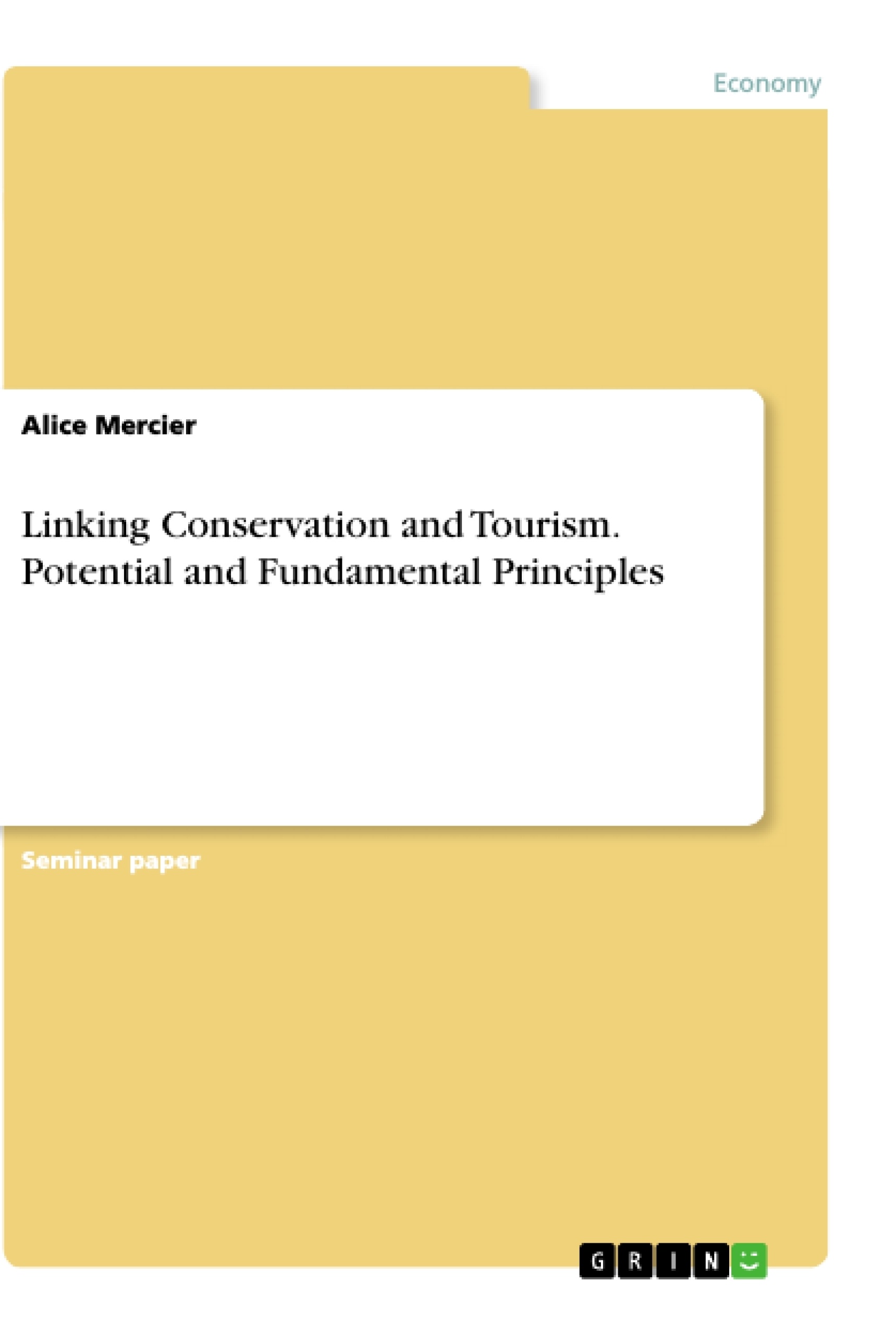There has been considerable debate whether the potential benefits of nature-based tourism can outweigh its much dreaded impacts on the ecological integrity of its natural venues. This paper argues that, under the currently prevailing socio-cultural conditions, nature-based tourism is an imperative feature of most areas of high conservation value, as it provides raison d'être and funding.
Fancied to be of even exceeding importance is its function as a communication platform reaching a broad audience. Best practice for effective interpretation has been repeatedly shown to result in reduced impacts on the spot, smothering claims for empirical substantiation of the intuitive notion, that visitors, aware of the consequences of their behaviours will adjust those accordingly. Wildlife tourism is spearheading this educationally based "soft" management approach, seemingly prising out the opposed to the "hard" physical and regulatory strategies, for a set of summarized characteristics predestining it.
Meanwhile sliding almost to oblivion, is the immense potential of interpretation to effectively spread environmental awareness and prudent behaviour beyond the scope of natural sightseeing in time and space. In its conclusion this paper tries to highlight some of the fundamental principles as well as main messages, interpreters should employ, to encourage especially long-term sustainable behaviour in visitors.
Inhaltsverzeichnis (Table of Contents)
- Introduction: On the necessity of tourism
- Bringing out the best in visitors
- The special case of wildlife tourism
- From mindful visitors to mindful managers: The neglected take home message
- At the core of things: The message itself
- Conservation is a science
- The whole picture: Ecological Integrity
- Involvement, Responsibility and Consumer Power
Zielsetzung und Themenschwerpunkte (Objectives and Key Themes)
This paper argues for the significance of nature-based tourism, particularly wildlife tourism, as a crucial tool for conservation. It emphasizes the potential of interpretation to minimize tourism's negative impacts while maximizing its positive benefits, thereby contributing to sustainable management practices.
- The necessity of tourism for conservation efforts
- The role of interpretation in shaping visitor behavior
- The effectiveness of interpretation in promoting environmental awareness
- The importance of sustainable management practices in wildlife tourism
- The limitations of interpretation and the need for complementary management strategies
Zusammenfassung der Kapitel (Chapter Summaries)
- Introduction: On the necessity of tourism: This chapter addresses the growing concerns about the impact of tourism on natural environments. It argues that responsible management practices are essential for the long-term sustainability of nature-based tourism, highlighting the importance of both economic and ethical considerations.
- Bringing out the best in visitors: This chapter explores the use of interpretation as a tool for influencing visitor behavior and promoting sustainable practices. It emphasizes the role of environmental education in shaping visitor understanding and encouraging responsible actions.
- The special case of wildlife tourism: This chapter focuses on the unique characteristics of wildlife tourism and how interpretation can be effectively utilized to manage visitor interactions with wildlife. It explores the challenges and opportunities presented by this specific type of tourism.
Schlüsselwörter (Keywords)
The central concepts explored in this paper include interpretation, sustainable tourism, wildlife tourism, conservation psychology, and environmental awareness. The text emphasizes the need for a comprehensive approach to managing nature-based tourism, integrating both physical and educational strategies to ensure the long-term well-being of natural environments.
Frequently Asked Questions
Is nature-based tourism beneficial for conservation?
Yes, tourism provides the necessary funding and a "raison d'être" for areas of high conservation value under current socio-cultural conditions.
What is the role of interpretation in wildlife tourism?
Interpretation acts as a communication platform to reduce negative impacts on-site by making visitors aware of the consequences of their behavior.
How does interpretation influence long-term visitor behavior?
Effective interpretation can spread environmental awareness and encourage sustainable behavior that lasts beyond the actual sightseeing visit.
What is the difference between "hard" and "soft" management in tourism?
Hard management uses physical and regulatory barriers, while soft management relies on education and interpretation to guide visitor actions.
What are the fundamental principles for effective conservation messages?
Interpreters should focus on ecological integrity, involvement, responsibility, and the power of the consumer to promote sustainable outcomes.
- Quote paper
- Alice Mercier (Author), 2010, Linking Conservation and Tourism. Potential and Fundamental Principles, Munich, GRIN Verlag, https://www.grin.com/document/914038



